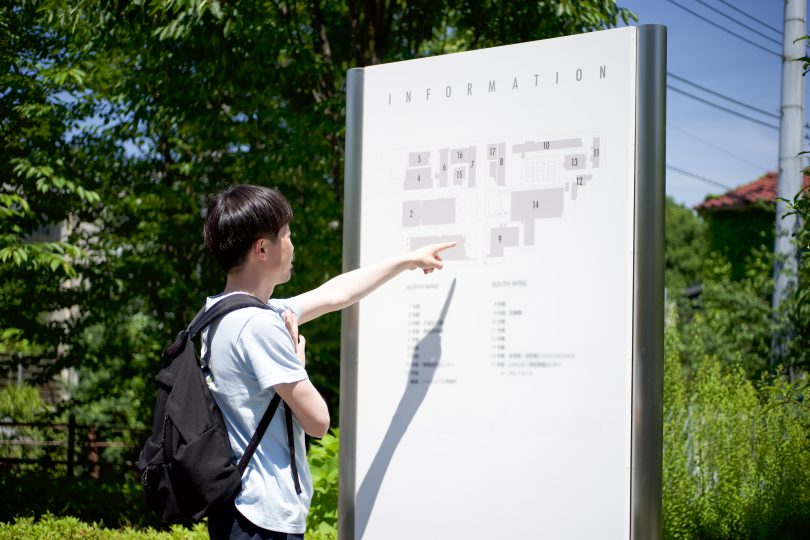Campus visits are a huge stepping stone in the recruiting process. In many cases, campus visits can speed up the recruiting timeline considerably. Other times, a poor campus visit can end recruitment entirely. Because campus...
Step 7: Preparing for Campus Visits and Visiting Schools
Do This
✅Conduct pre-visit online research to understand the basics about the program before you visit campus
✅Do this pre-visit worksheet to make sure you are prepared
✅Prepare conversation starting questions for things about the program you would like to learn more about
✅Meet with the parent/guardian who will accompany you on the visit to come up with a list of all the questions you want answered and discuss appropriate visit behavior
✅Plan what you want to gain from the visit ahead of time (Do you have all the information you need and just want an offer so you can commit? Or are you looking to learn more about the program so you can make a better informed decision after weighing other options? Having a clear goal in mind before going can greatly improve your chances of having a successful visit!)
✅Write down all your questions before you go so you don’t forget to ask
✅Print and use this pre-visit checklist to make sure you are ready before setting foot on campus
✅Be honest, and present the best version of yourself.
✅Put your cell phone away and give coaches your undivided attention.
✅Speak for yourself. Parents should not be answering questions on your behalf or leading the majority of conversations.
✅Ask all the questions you need to get the information that you need. If you receive an offer, you will want to leave campus with the information you need to make a decision about the school.
✅Ask what the next steps are after the visit and find out where you stand with the program
✅Take notes right after each visit (in the car if you can) so that you don’t forget what you learned. If you end up making lots of visits and talking with lots of schools, you will be thankful you did this when it comes to decision time.
✅Discuss the information with your parents and compare opinions and notes on the visit, school, and coaches.
✅Email or call the coach within 24 hours of the visit to thank them for having you to campus and to ask follow-up questions for anything you are not 100% clear on.
✅Maintain regular communication with the school and treat all programs with respect, even if you have decided they are not a fit for you.
✅Assess where you are with each school. Did you receive an offer? Do they want you to go play there? Are they still evaluating you?
✅Ask yourself if you will be happy at that school if baseball doesn’t work out.
✅Ask yourself what the school will do for you over the next 4 years. What about the next 40 years?
Learn About This
✅Learn about the different kinds of campus visits
✅Learn about when you are allowed to take different kinds of campus visits
✅Learn about how to prepare for a campus visit
✅Learn about what to expect during your visit
✅Learn about how to digest and remember your visit when it's finished
✅Learn about what to expect after your visit
✅Learn about what questions you should be asking of interested college coaches during campus visits
✅Learn about the role of your parents during a campus visit
✅Learn about the way campus visits can go wrong
✅Learn about how visits can speed up recruitment and alter expectations
Read This
Step 7: What to Read and Research
The ‘Read This’ section of Step 7 aims to get you prepared to ace your campus visits. The resources under ‘Read This’ for Step 7 will: Tell you what you can expect out of a campus visit Help you understand...
Academics
When you prepare for a campus visit at a school of interest, you are preparing for your future. What recruits often forget about during their baseball-centered visit is asking the questions they need to about academics. Be different. Coaches will be excited to answer your questions about academics and their answers will provide you with important feedback about the way academics are integrated into their program. A few questions we think every recruit needs to be able to answer before deciding on a school are:
How do classes fit in with the practice, game, and lifting schedule?
Are there any required study hall hours for baseball players?
Are there any majors that are off-limits to baseball players?
What academic support services are available to baseball players?
What are some of the careers that your former players are in?
Make sure you have academic questions that interest you ready for your visits. Your college decision will shape the rest of your life and you want to make sure you are in a place that is a good fit for you on the field and in the classroom.
Player Development
You are making great progress towards finding a college baseball fit! The cool part about making campus visits is you now get to ask questions and evaluate the way college baseball programs develop players and see how they would develop you. Seeing the locker room and field are great, but finding out the coaching philosophies and the training philosophies that a program uses to get players better should be your focus. Ask questions about how they train their players. Ask questions about how you fit into that training methodology. Ask them if they would let you keep parts of your training routine that you find particularly helpful. Ask them how individualized their training and development programs are and how much freedom you would have within the system. Remember, you will be spending hours upon hours each week within a development system, and you want to know exactly what you are getting into. If coaches are hesitant or vague in their answers, have questions prepared to find out more. If they still balk at telling you their plans, consider it a red flag.
You want to find a match for you so that your development can continue to take your game to the highest level. Not only is it exciting to hear about what college programs are teaching their players and the type of training that they are doing, but it's an opportunity for you to incorporate it into your training and development plan now.




